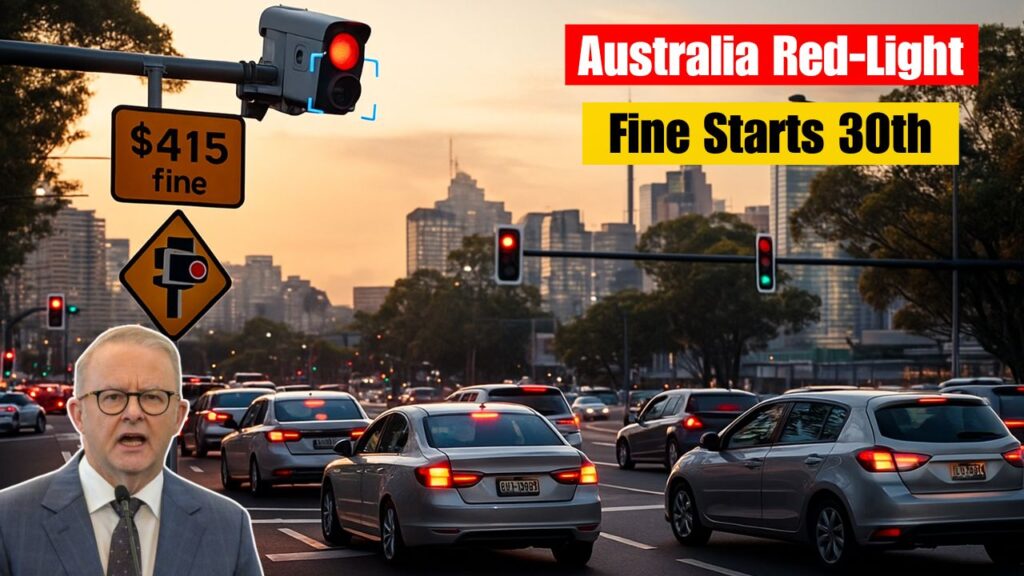Australia is launching a major road safety reform from 30 November with a new $415 rolling-red fine backed by advanced AI red-light cameras. This nationwide update targets dangerous intersection behaviour by catching drivers who creep forward or move through a red signal before it turns green. With AI-powered monitoring now spreading across multiple states Australian drivers need to follow traffic rules carefully to avoid penalties. The new enforcement system should boost road safety while delivering faster and more accurate detection of violations than traditional cameras.

New AI Red-Light Fine Rules Introduced for Australian Drivers
Rolling Red Light Fines in Australia The new $415 rolling-red fine marks a significant change in how Australian drivers face road enforcement at busy intersections. The updated regulations allow AI-powered cameras to detect even minor forward movement after the light turns red & classify it as a traffic violation. This technology works to prevent dangerous behaviors like creeping forward or blocking pedestrian crossings or moving into the intersection too early. Officials stress that these fines serve a protective purpose rather than just punishment by ensuring drivers & cyclists and pedestrians stay safe through strict compliance with red-light signals nationwide. Since the system launched on 30 November motorists should remain completely stopped until the light turns green.
Australia Expands Rolling-Red Enforcement From 30 November 2025
Transport departments across Australia are installing more intelligent enforcement systems to address the growing number of red-light violations. The $415 rolling-red penalty applies to drivers who edge forward during a red signal before it is safe to proceed. This differs from standard red-light running and uses AI sensors that can detect even small movements. Australian road authorities say that artificial intelligence allows for more accurate real-time decisions while reducing incorrect detections and improving safety. As these systems expand nationwide motorists can expect AI cameras to become a regular feature at intersections.
| Rule/Detail | Explanation |
|---|---|
| Fine Amount | $415 for each rolling-red offence |
| Start Date | 30 November 2025 |
| Technology Used | AI red-light cameras with motion sensors |
| Trigger Condition | Any forward movement during a red signal |
| Primary Goal | Reduce risky behaviour at intersections |
Nationwide AI Traffic Surveillance Set to Catch More Violators
The growth of AI traffic monitoring is part of a wider modernisation program that impacts Australians across all major states and territories. These new systems rely on advanced analytics to spot dangerous driving behaviors such as rolling through red lights and blocking intersections. When authorities combine AI with current road safety networks they can make faster automated decisions that reduce the workload for human officers. This approach supports national plans to cut accident rates & protect pedestrians in high-risk urban areas. As more intersections install this technology drivers will face stricter enforcement and less room for breaking traffic rules.
Canberra Launches AI-Driven Red-Light Detection System for Drivers
The Canberra government has stated that AI-powered red-light cameras will improve safety across the area. The new systems take clear images & quickly examine how vehicles move to identify rolling-red violations. The AI technology differs from older cameras because it can tell the difference between careful stops and illegal creeping forward. This means enforcement will be more accurate. Officials explain that the aim is not to collect more fines but to stop dangerous driving and promote safer habits at intersections. As other regions start using this technology Canberra’s approach is likely to shape national safety policies in the future.




